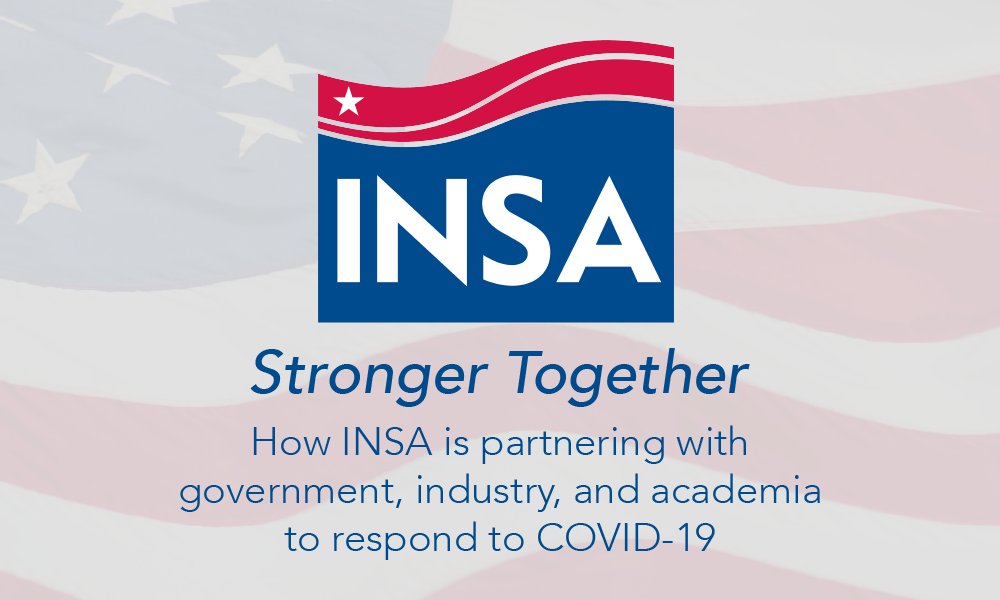INSA's Support for the Trusted Workforce
Below you will find the ways INSA has been advocating in support of the Trusted Workforce in response to COVID-19. In addition, you will find a list of IC agency guidance that could be helpful to organizations across the community.
[button text="Government Guidance" url="#Government-Guidance" size="middle" type="colored" text_color="#ffffff" mouseover_text_color="#000" bg_color="#d11919" bg_transparent="0" mouseover_bg_color="" mouseover_bg_transparent="1" border_color="" border_color_transparent="1" mouseover_border_color="#000" mouseover_border_color_transparent="0" sc_id="sc5495093483"] [button text="Give Us Feedback" url="https://www.surveymonkey.com/r/N7PTXV9" size="middle" type="colored" text_color="#fff" mouseover_text_color="#000" bg_color="#d11919" bg_transparent="0" mouseover_bg_color="" mouseover_bg_transparent="1" border_color="" border_color_transparent="1" mouseover_border_color="#000" mouseover_border_color_transparent="0" sc_id="sc1110139506008"] [button text="Key Takeaways from Gov't Calls" url="https://www.insaonline.org/update-to-insas-covid-19-outreach/" size="middle" type="colored" text_color="#fff" mouseover_text_color="#000" bg_color="#d11919" bg_transparent="0" mouseover_bg_color="" mouseover_bg_transparent="1" border_color="" border_color_transparent="1" mouseover_border_color="#000" mouseover_border_color_transparent="0" sc_id="sc897162296780"][divider sc_id="sc270239750045"]divider-2[/divider]
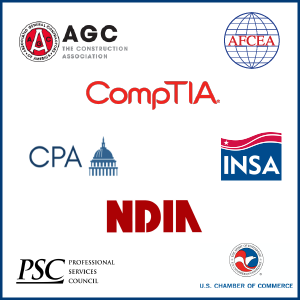 INSA Urges Congress to Extend Section 3610
INSA Urges Congress to Extend Section 3610
November 20, 2020
On November 20, INSA, along with seven other organizations, co-signed a letter urging Congress to extend Section 3610 of the CARES Act. Section 3610 allows federal agencies to cover necessary contractor costs using existing funds, enabling contracted employees to continue carrying out mission-critical work. “This authority continues to be used by many federal agencies to maintain the capabilities and workforce necessary to meet mission needs and protect our national security and other vital programs,” the letter states. Recognizing the recent growth of COVID-19 cases, the signing organizations asked Congress to extend Section 3610 through September 30, 2021, the end of the government’s fiscal year.The letter also took care to acknowledge and thank the recipients for their efforts in fighting against a government shutdown and continued support for the cleared workforce throughout the pandemic. Read the letter >>>
[divider sc_id="sc270239750045"]divider-2[/divider]
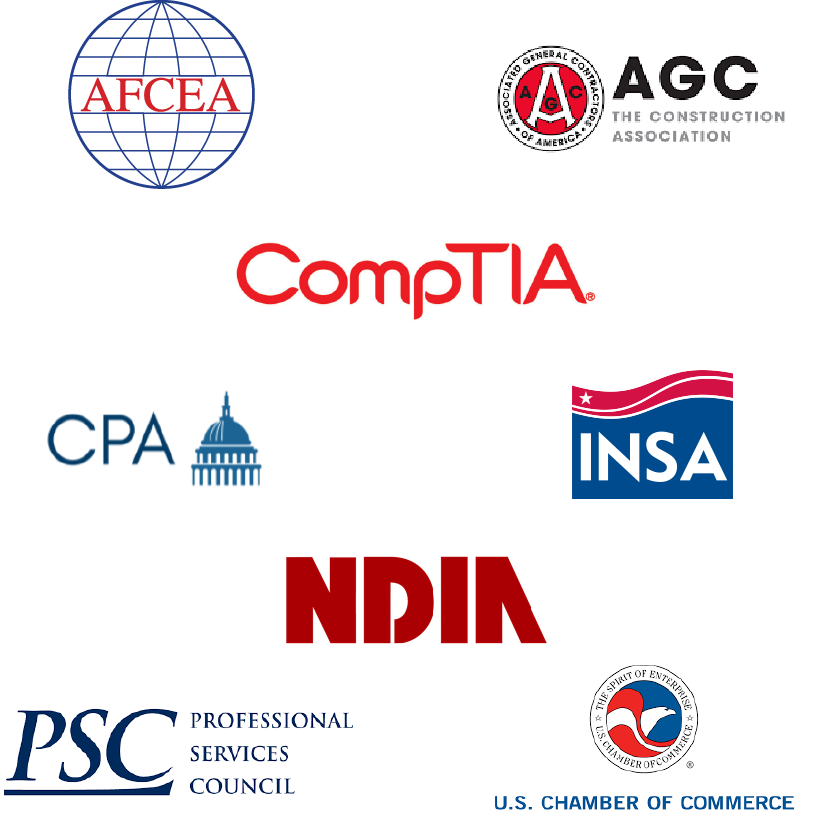 Update: Multi-Association Letter to Request Extension and Funding for Section 3610
Update: Multi-Association Letter to Request Extension and Funding for Section 3610
July 31, 2020
In a July 31 letter to Congressional leaders, INSA and other leading associations asked that Section 3610 be extended to allow contingency reimbursements through December 31, 2021. Such an extension would support the continuity of government operations through the COVID-19 national emergency while preserving the ability of the private sector to maintain its capability to fully support agency missions into the future. Read the letter>>>[divider sc_id="sc270239750045"]divider-2[/divider]
 Multi-Association Letter to Request Extension and Funding for Section 3610
Multi-Association Letter to Request Extension and Funding for Section 3610
July 24, 2020
In the letter to Congressional leaders, INSA and other leading associations ask that Section 3610 be extended to allow contingency reimbursements through December 31, 2020. INSA and its counterparts also urge Congress to appropriate supplemental funds specifically to cover payments made under Section 3610. Since the CARES Act did not provide funds for the implementation of Section 3610, the Defense Department and intelligence agencies have been drawing on funds appropriated for other purposes.“Contractors for intelligence agencies cannot simply take classified work home with them and telecommute during the pandemic,” said Larry Hanauer, INSA’s Vice President for Policy. “Section 3610 has enabled national security contractors to keep cleared employees ready to return to work rather than lay them off, which would cost tens of thousands of jobs and undermine national security. But the pandemic will continue past September 30, which means the authorities to continue supporting cleared industry are needed past that date as well.”
Read the letter>>>Related Media Coverage
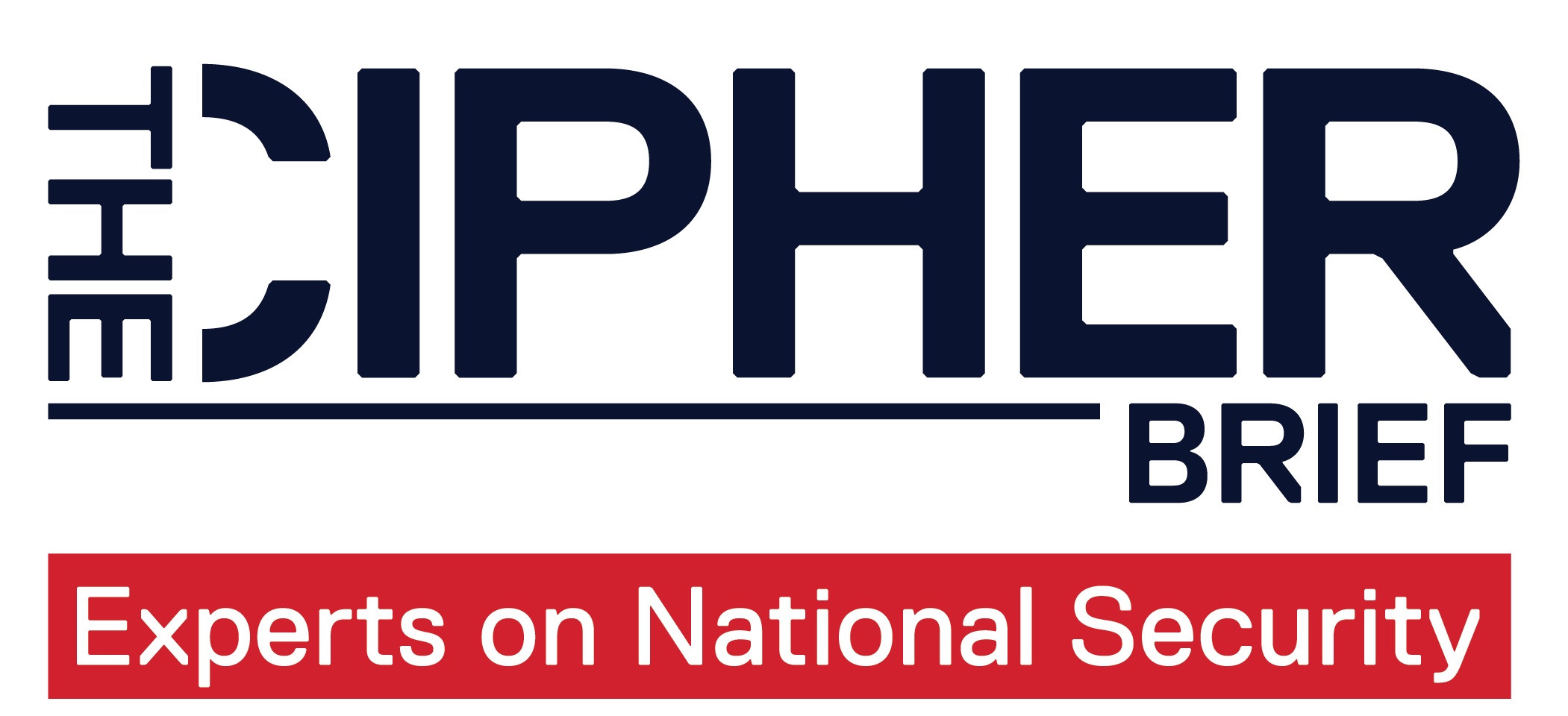 The Cipher Brief Newsletter
The Cipher Brief Newsletter
July 28, 2020
Contractors working in the IC who are not able to take their classified work home are getting support from INSA to urge Congress to extend CARESAct benefits that so far, have kept many of them from losing their jobs. INSA sent a letter to Hill leaders asking that Section 3610 be extended through December 31...Read more.
 National Security Companies and Contractors Still Adjusting to Coronavirus Changes
National Security Companies and Contractors Still Adjusting to Coronavirus Changes
July 28, 2020
It won’t be back to business as usual for intelligence community and national security workers. And that means government contractors need more time to take advantage of contingency funds, urges a recent letter signed by a group of trade groups and industry associations, including the Intelligence and National Security Alliance, Professional Services Council, U.S. Chamber of Commerce, and Armed Forces Communications and Electronics Association...Read more.
[divider sc_id="sc270239750045"]divider-2[/divider]
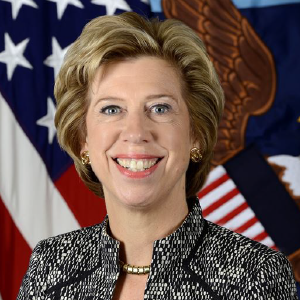 Summary and Key Points: House Armed Services Committee Hearing on DOD COVID-19 Response to DIB Challenges
Summary and Key Points: House Armed Services Committee Hearing on DOD COVID-19 Response to DIB Challenges
June 10, 2020
The Department has taken steps to ensure the widest dissemination of guidance to the contracting community. These contracting policy documents focus on allowing companies to continue to work while ensuring workforce safety, providing liquidity, implementing legislation crucial to industry, improving speed of contracting, and providing spending transparency. DOD implementation guidance provides a framework for contracting officers to assess any claimed, allowable paid leave, including sick leave, that a contractor or subcontractor provides to keep its workforce in a ready state.In the early stages of the pandemic, industry made clear that liquidity was a key issue. DOD increased the progress payment rate from 80% to 90% for large businesses and 90% to 95% for small businesses. This change will infuse an estimated $3 billion in cash to all levels of the DIB. The Department has partnered with the major prime contractors to ensure that this increase in cash makes its way throughout the supply chain...Read the full summary.
[divider sc_id="sc270239750045"]divider-2[/divider]
 Letter from the Secretary of Defense to the Defense Industrial Base (DIB) Workforce
Letter from the Secretary of Defense to the Defense Industrial Base (DIB) Workforce
May 4, 2020
Dear Defense Industrial Base Workforce:During these extraordinary times for our Nation and the world, I would like to recognize your focus and dedication to maintaining the United States' unrivaled defense industrial base. Your commitment has allowed the Department of Defense to not only sustain readiness, but also move forward with modernization...Read the full letter.
[divider sc_id="sc376575009638"]divider-1[/divider]
 NDIA COVID-19 Small-Business Impacts Survey Summary
NDIA COVID-19 Small-Business Impacts Survey Summary
April 23, 2020
NDIA today released the results of its COVID-19 Small Business Impacts Survey, which found that accelerating payments to small businesses is the most important thing the DoD and/or prime contractors can do to help businesses recover from the pandemic. Approximately 770 small businesses in the national security and defense sector answered the survey, which NDIA did at the request of the Pentagon’s Office of Acquisition and Sustainment. Download the Report.Summary of Major Findings
- Respondents expect the COVID-19 crisis to have the biggest impact on their revenue expectations, followed closely by their
- ability to perform on a contract and their access to capital.
- The technology and services sectors responded that they have been much more impacted by this crisis than the
- manufacturing sector.
- Smaller businesses (fewer than 50 employees) were much more impacted than larger businesses (more than 500 employees).
- 60% of the overall respondents have experienced a disruption in cash flow as a result of this crisis and 67% of companies with
- less than $999,999 in annual revenue have had their cash flow disrupted.
- Cuts to billable hours, delayed payments from prime contractors and government customers due to a shutdown or telework,
- and lack of telework options or schedule flexibility in the contracts are cited as reasons for the disruptions in cash flow.
- 51% of small businesses have experienced a disruption in their ability to perform on a contract as a result of a shelter-in-place
- order related to the COVID-19 outbreak.
- 60% of respondents expect to have long-term financial and cash-flow issues as a result of this crisis
Top Three Policy Recommendations
- Past Performance: DoD should consider creating a mechanism for denoting contract performance that occurs during this crisis. Whether excusing delays or giving extra credit to those businesses that keep performance schedules during this period, it is important to note that this is not a typical business performance environment and that businesses should not be punished in the future for discrepancies in performance during this time.
- Continued Contracting: The cancellation of networking and matchmaking opportunities will have long-term impacts on contractors’ ability to gain DoD business. DoD should pursue a policy of hosting virtual networking and pitch-day opportunities to ensure that small businesses are able to market new products and services during this period. DoD should consider partnering with convener organizations to offer these virtual events.
- Accelerated Payments: As has been communicated previously, we recommend that the Defense Logistics Agency (DLA) reverse their policy position to no longer accelerate payments to small businesses. Accelerating these payments to 15 days or less would have a direct positive impact on the cash flow of small businesses.
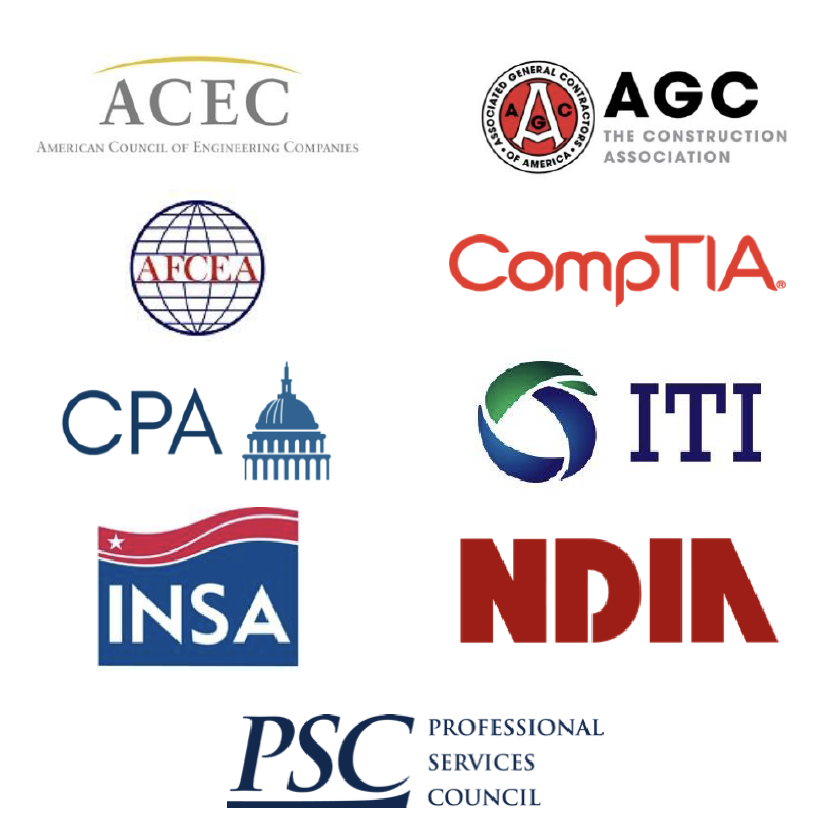 Multi Association Letter to OMB
Multi Association Letter to OMB
April 16, 2020
SUBJECT: Implementation of Section 3610 of the Coronavirus Aid, Relief, and Economic Security Act (CARES Act)Dear Director Vought,
On behalf of the undersigned organizations, we write today to seek clarifying and overarching guidance from the Office of Management and Budget (OMB) on the implementation of Section 3610 of the Coronavirus Aid, Relief, and Economic Security Act (CARES Act). Section 3610 authorizes agencies to reimburse contractors at minimum applicable contract billing rates for employees who cannot perform work because of Coronavirus Disease 2019 (COVID-19)-related facility closures and other restrictions, and those who cannot telework. Consistent implementation of this provision is critical to the viability of the hundreds of thousands of companies that make up our nation's critical infrastructure and defense industrial base supply chains, and that must retain a ready workforce throughout the COVID-10 national emergency...Read more.
Related Media Coverage
 Vendors Who Can't Work Due to Coronavirus Asking for More Clarity, Consistency
Vendors Who Can't Work Due to Coronavirus Asking for More Clarity, Consistency
April 21, 2020
If there is one thing nearly every federal agency has experienced over the last 75 years, consistent application of laws, regulations and policy is a grueling and, unfortunately, many times a futile effort. It’s more due to human nature than something malicious or purposeful...Read more.
[divider sc_id="sc257616748088"]divider-1[/divider]
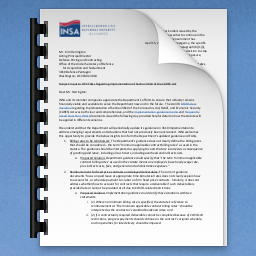 INSA Letters to DOD
INSA Letters to DOD
April 15, 2020
Today, INSA submitted a letter to Defense Pricing and Contracting (DPAC) with recommendations for inclusion in the Department's forthcoming implementation guidance for Section 3610 of the CARES Act. An earlier letter with similar recommendations was sent to OSD A/S on April 8. INSA's input is being considered as part of the ongoing COVID-19 response effort by the DOD.[divider sc_id="sc257616748088"]divider-1[/divider]
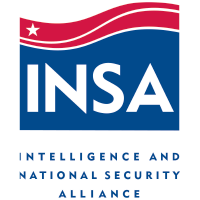 Update to INSA’s COVID-19 Outreach
Update to INSA’s COVID-19 Outreach
April 8, 2020
Our top priority during the COVID-19 crisis is to ensure government decision makers act with a clear understanding of industry’s concerns, while also keeping members informed of current and pending government action. In recent weeks, INSA has participated in a number of calls with intelligence and defense department leaders to share insights and inform policy...Read more.
Related Media Coverage
 Weird Hours, Contractor Concerns: How the Intelligence Community Is Grappling with Coronavirus
Weird Hours, Contractor Concerns: How the Intelligence Community Is Grappling with Coronavirus
April 9, 2020
Like any other vital institution, the U.S. intelligence community is grappling with the disruptive effects of the coronavirus — including unconventional working hours and uncertainty among the employee and contractor work forces...Read more.
[divider sc_id="sc257616748088"]divider-1[/divider] Sen. Warner Urges OMB to Clarify Relief for National Security Contractors
Sen. Warner Urges OMB to Clarify Relief for National Security Contractors
April 2, 2020
INSA supports the April 2 letter Sen. Warner sent to OMB Acting Director Russell Vought urging OMB to issue a directive so government agencies consistently implement Section 3610 of the CARES Act. "Without such overarching directive, I fear that agencies and their contracting officers will take disparate approaches, leading to uncertainty and instability in the contractor industrial base, if not a permanent loss of capability," wrote Sen. Warner. "In addition, I want to avoid draconian cutbacks that may create significant counterintelligence risks." Read the letter.[divider sc_id="sc257616748088"]divider-1[/divider]
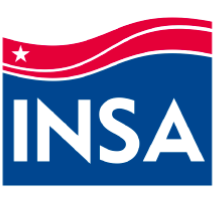 INSA Applauds Passage of the CARES Act
INSA Applauds Passage of the CARES Act
March 27, 2020
The Intelligence and National Security Alliance (INSA), an association representing 160 federal contractors supporting defense and intelligence agencies, applauds the passage of the historic Coronavirus Aid, Relief, and Economic Security (CARES) Act, which was signed into law by President Trump on Friday, March 27. This vital legislation provides much needed financial relief for thousands of private-sector businesses that make up our nation’s Defense Industrial Base. INSA President Suzanne Wilson Heckenberg issued the following statement in response to the passage of this landmark legislation...Read more.Related Media Coverage
 COVID-19 Is Forcing the Intelligence Community to Think Outside the SCIF
COVID-19 Is Forcing the Intelligence Community to Think Outside the SCIF
April 3, 2020
The COVID-19 outbreak is forcing all federal agencies to contemplate teleworking at scale. This creates unique challenges for the secretive intelligence community (IC), whose culture is anchored in security clearances, windowless buildings, classified computer networks, and in-person meetings with trusted colleagues...Read more.
 Contractors Negotiate Arrangements with Intell Agencies to Continue Classified Work during Pandemic
Contractors Negotiate Arrangements with Intell Agencies to Continue Classified Work during Pandemic
April 2, 2020
Some contractors working with agencies within the intelligence community are negotiating arrangements with contract officers on a case-by-case basis to continue to perform classified work during the coronavirus pandemic...Read more.
[divider sc_id="sc705967773364"]divider-1[/divider] INSA Letter to ODNI, OMB, OPM, OSD/A&S
INSA Letter to ODNI, OMB, OPM, OSD/A&S
March 21, 2020
SUBJECT: Mitigating the Impact of COVID-19 on the Cleared Industrial BaseDear Acting Directors Grenell and Rigas, Deputy Director Weichert, and Under Secretary Lord:
Federal agencies, particularly in the national security community, depend on contractors to execute critical government missions and ensure the continuity of government. For this reason, the Defense Industrial Base, which includes companies providing intelligence support, is identified as a critical infrastructure sector by the Department of Homeland Security.
We write to encourage you to do all that is possible to bolster the health of government’s industry partners in the national security sector, which face dire financial straits as a result of the COVID-19 outbreak. One rough industry estimate assesses that to maintain operational costs and a steady workforce during a one-month full shutdown, a grouping of 20 large public defense industrial base companies would see an 85 percent reduction in cash flow and a 33 percent increase in debt, bringing some government contractors – particularly small and medium-sized firms – to the verge of default... Read more.Related Media Coverage
 Legal update on coronavirus impact
Legal update on coronavirus impact
March 26, 2020
As COVID-19 keeps spreading and government agencies continue to provide flexibility to its own workforce, and since my last commentary, government contractor anxiety over its own employees and potential contractual and legal risk continues...Read more.
 Defense, Intel Agencies Respond to What COVID-19 Means for their Employees
Defense, Intel Agencies Respond to What COVID-19 Means for their Employees
March 26, 2020
Some agencies are not well-suited for telework due to the classified nature of their work, such as agencies within the Defense Department and the Intelligence Community. Coupled with the importance of their work to national security...Read more.
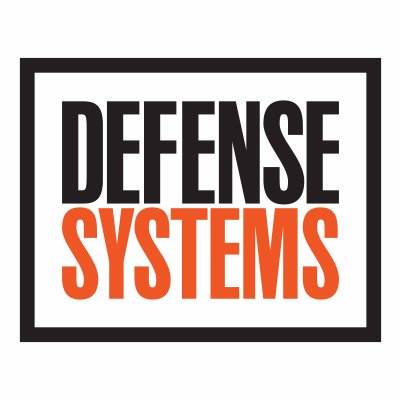 DOD asks contractors to maximize telework capabilities
DOD asks contractors to maximize telework capabilities
March 25, 2020
The Defense Department wants contractors to maximize telework opportunities in the midst of the coronavirus outbreak. Kim Herrington, the acting director for Defense Pricing and Contracting in the Office of the Secretary of Defense, issued a memo March 20 instructing defense companies to "consider unprecedented flexibilities"...Read more.
 As more government workers are sent home, coronavirus risks hobbling U.S. intelligence
As more government workers are sent home, coronavirus risks hobbling U.S. intelligence
March 25, 2020
The rapid spread of the coronavirus has sent a large number of federal workers home to telework, in some cases limiting government services, raising concerns that some of the nation’s highly sensitive national security work, which can often only be done in secure facilities, could suffer...Read more.
 Telework Should Be an Option for Some Workers With Security Clearances
Telework Should Be an Option for Some Workers With Security Clearances
March 25, 2020
The national security community is facing new challenges in the wake of COVID-19. With the coronavirus demanding social distancing and creating new calls for workers in some communities to begin telework...Read more.
Earlier Articles:
Telework cybersecurity guidance could be on the way
DOD to extend maximum telework to contractors
5 Tips for Cleared Workers Navigating Working From Home
Contractors getting federal guidance on working amid coronavirus pandemic
Trade group calls for Trump administration policy to help protect intelligence contractors (March 23, 2020)
The Cipher Daily Brief Newsletter (March 23, 2020)
[divider sc_id="sc136970840489"]divider-1[/divider]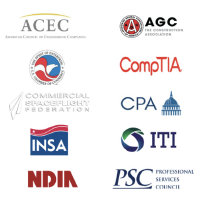 Multi-Association Letter to Congress | Support to Gov't Contractors Unable to Access Federal Facilities During COVID-19 Pandemic
Multi-Association Letter to Congress | Support to Gov't Contractors Unable to Access Federal Facilities During COVID-19 Pandemic
March 19, 2020
The undersigned organizations write to seek your support for the issuance of adequate guidance to ensure the health and economic security of the thousands of federal government contractors that work side by side with federal employees each day in support of their mission. As the COVID-19 pandemic has reached federal offices and is forcing closures and quarantines, there has been inconsistent federal agency guidance and direction as to the treatment of contractors during this uncertain time...Read more.Related Media Coverage
 What contractors want to see in coronavirus relief bill
What contractors want to see in coronavirus relief bill
March 20, 2020
Ten trade organizations that count government contractors as members have asked congressional leaders to include language in pending economic relief legislation that will give direct help to GovCon firms amid the coronavirus pandemic...Read more.
 Trade organizations call on Congress to assist government contractors | Inside Defense
Trade organizations call on Congress to assist government contractors | Inside Defense
March 19, 2020
Ten trade organizations today sent a letter to congressional leaders seeking language in pending relief legislation that will help government contractors...Read more.
 NDIA leads associations calling on Congress to cover contractors during COVID-19 response
NDIA leads associations calling on Congress to cover contractors during COVID-19 response
March 19, 2020
With the COVID-19 virus response directing people to avoid contact and stay at home, Congress needs to give sound guidelines “to ensure the health and economic security”...Read more.
[divider sc_id="sc543481995177"]divider-1[/divider]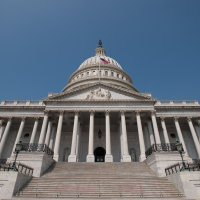 INSA Statement: Implications of COVID-19 for the Cleared Workforce
INSA Statement: Implications of COVID-19 for the Cleared Workforce
March 10, 2020
To mitigate the potential implications of the novel coronavirus (COVID-19), it is entirely possible that federal government offices will close for a period of time. Although many unclassified tasks may be suitable for telecommuting, classified work cannot be performed outside a government-approved secure facility; as a result, non-essential classified work that must be performed in secure workspaces may be significantly disrupted. Many companies with extensive government contracts – and their employees – could find it difficult to weather a sustained interruption of operations....Read more.Related Media Coverage
 Senator Calls on Administration to Offer Flexibilities on Security Clearance Adjudications for Coronavirus | Government Executive Article on Sen. Warner's (D-VA) Letter to OPM
Senator Calls on Administration to Offer Flexibilities on Security Clearance Adjudications for Coronavirus | Government Executive Article on Sen. Warner's (D-VA) Letter to OPM
March 12, 2020
A top Democrat called on the federal government on Wednesday to offer flexibilities on security clearance adjudications for the intelligence community for novel coronavirus-related matters...Read more.
 Telework during a coronavirus outbreak? Not usually an option for classified federal workers | Federal News Network Interview with INSA's Larry Hanauer
Telework during a coronavirus outbreak? Not usually an option for classified federal workers | Federal News Network Interview with INSA's Larry Hanauer
March 10, 2020
Though many agencies have explained how their employees will continue mission-critical work during a potential COVID-19 outbreak, the classified federal workforce has far fewer options...Read more.
[divider sc_id="sc456428124311"]divider-2[/divider]Share Your Thoughts!
Do you work in the intelligence and national security community? How is COVID-19 impacting your business operations? Let us know.[divider sc_id="sc1059423518152"]divider-2[/divider]
Helpful Links
Government Guidance
- DCSA Memo on Fingerprinting/Personnel Vetting, 4/3/20
- Dept. of Army: Promoting Resiliency of the Defense Industrial Base During COVID19 Pandemic
- DHS: Chief Procurement Officer Memo on 3610 Implementation, 3/16/20
- DHS: Chief Procurement Officer Letter to Contractors, 3/5/20
- DHS: Chief Procurement Officer Message on Health and Safety Precautions for COVID-19
- DHS CISA: Trusted Internet Connections 3.0 (Interim Telework Guidance)
- DHS CISA: Memorandum on Identification of Essential Critical Infrastructure Workers During COVID-19 Response
- DHS CISA: Advisory Memorandum on Identification of Essential Critical Infrastructure Workers During COVID-19 Response (Version 3.0, updated 4/17/20)
- DIA CARES Bulletin
- DIA: Global Modifications
- DOD: Guidance for Assessment of Other COVID-19 Related Impacts and Costs New!
- DOD: Pentagon Reservation Plan, 5/26/20
- DOD: FAQs regarding 3610 Implementation Guidance
- DOD: Implementation Guidance on Section 3610
- DOD: Class Deviation (CARES Act Section 3610 Implementation)
- DOD: Emergency Acquisition Flexibilities
- DOD: Continuation of Essential Contractor Services
- DOD: Planning for Potential Novel Coronavirus Contract Impacts
- DOD: Defense Industrial Base Contract Considerations
- DOD: Class Deviation - Progress Payment Rates
- DOD: Defense Industrial Base Essential Critical Infrastructure Workforce
- DPC: 3610 Implementation FAQ - UPDATED 4/17/20
- DPC: COVID-19 Guidance Provided for the Contract Community
- DPC – Class Deviation (Undefinitized Contract Actions), 4/3/2020
- DPC – Implementation of Class Deviation (Progress Payment Rates), 4/3/2020
- FEMA Fact Sheet: PPE Needs in Non-Healthcare Settings
- NGA: Direction to Contractors, COVID-19
- OMB: Additional Guidance on Federal Contracting Resiliency in the Fight Against the Coronavirus Disease (COVID-19) New!
- OMB: Guidance on Sec. 3610 Implementation, 4/17/20
- OMB: Updated Guidance on Telework Flexibilities in Response to Coronavirus
- OMB: Managing Federal Contract Performance Issues Associated with the Novel Coronavirus (COVID-19)
- OPM: FAQs on Human Resources Flexibilities and Authorities for COVID-19
- OPM: Recent Actions by WHO and OMB
- OPM: On-Boarding Process for New Employees During the COVID-19 Emergency
Business/Government Resources
- Top Secret Telework | ClearanceJobs
- U.S. Chamber of Commerce: Combating the Coronavirus
- DHS/NSA | Telework Best Practices New!
Health & Safety Resources
- CDC Resources for Businesses and Employers
- WHO: Get Your Workplaces Ready for COVID-19
- WHO: COVID-19 Map

